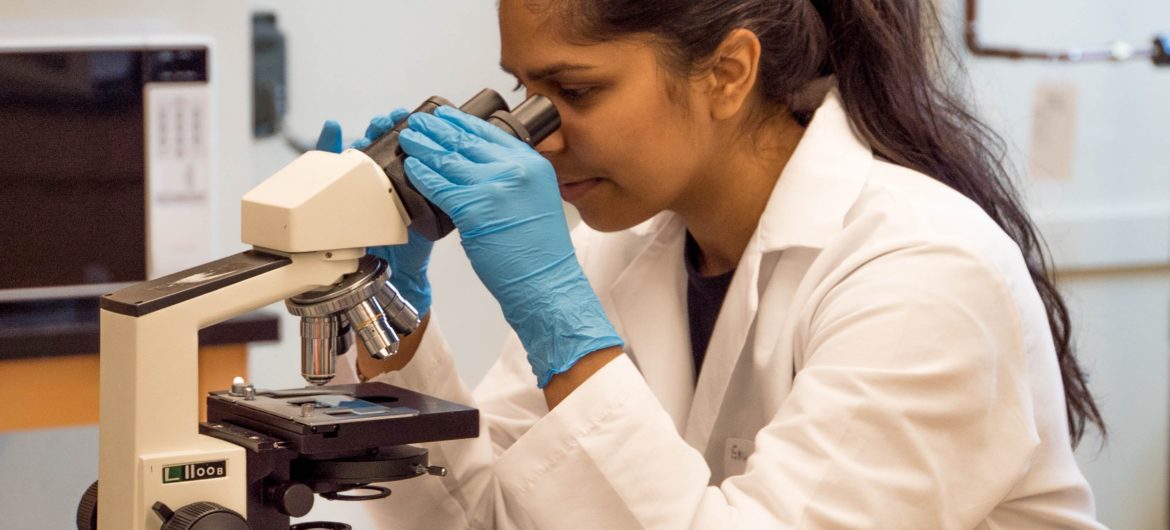Despite their remarkable discoveries, women still represent just 33.3 percent of researchers globally, and their work rarely gains the recognition it deserves.
This year marks the third edition of the L’Oréal-UNESCO For Women in Science South African National Young Talents Programme, which supports young female scientists and rewards scientific excellence.
Through the programme, UNESCO and the Foundation L’Oréal recognise women researchers who, through the scope of their work, have contributed to overcoming today’s global challenges.
Women scientists are leading ground-breaking research across the world. But despite their remarkable discoveries, women still represent just 33,3 percent of researchers globally, and their work rarely gains the recognition it deserves.
Only 3 percent of Nobel Prizes for science have ever been awarded to women.
As the world hurtles towards a future threatened by climate change, resource scarcity and illnesses, the global scientific community must lose no time in recognising and promoting women scientists’ achievements.
The Foundation L’Oréal and UNESCO have worked together for more than 20 years to help empower more women scientists to achieve scientific excellence and participate equally in solving the challenges facing humanity.
“One day, we will live in a world where girls are encouraged to study science, where women have adequate support to balance the responsibilities of research and motherhood, and where scientists are judged purely on the merit of their discoveries and the potential of their work to change the world,” explained Gilles Antoine, L’Oréal South Africa’s country manager.
“We are proud to be supporting young women pursuing scientific careers across Africa through our South African and sub-Saharan Africa programmes.” Explained Gilles Antoine, L’Oréal South Africa Country Manager,“ Antoine added.
“This year as we once again honour six women scientists from across South Africa, for 2021, we reaffirm our commitment to supporting young women scientists, who are at the helm of ground-breaking research projects,” he concludes.
The six winners were recognised at an awards ceremony recently hosted in Johannesburg, for the 2020 and 2021 winners.
Here’s what you need to know about the winners:
Post PhD category
Dr. Ezette Du Rand
Social Insects Research Group, University of Pretoria
The overall goal of Dr. Du Rand’s research is to use the genetic diversity in different global honeybee populations to develop a scientifically guided breeding programme that selects for honeybee lineages that are tolerant against diseases and more versatile in coping with environmental stressors.
Dr. Rouxjeane Venter
Clinical Mycobacteriology and Epidemiology, University of Stellenbosch
The aim of Dr. Venters’ study is to get a fast and accurate diagnosis for patients with Drug Resistant-TB so that they can get placed on effective treatment sooner. Often patients with Drug resistant TB do not get started on the correct treatment or are placed on treatment much later due to delays in proper diagnosis.
Dr. Veshara Ramdas
The Council for Scientific and Industrial Research (CSIR) Chemicals Cluster – Bioprocessing unit & the University of Kwa-Zulu Natal
Dr. Ramdas is developing a product similar to a soil binder such as, cement, lime or bitumen for the road construction industry. Her research is biologically based and environmentally friendly. The outcomes from her research would be stabilising weak soils such as the soil present on unpaved roads in rural areas.
PhD category
Dr. Cosnet Lerato Rametse
Gray Lab- Division of Immunology, University of Cape Town
HIV remains a global burden that still needs urgent attention, there is still a high rate of new HIV infections, both globally and in South Africa. HIV acquisition in men through penile exposure is one of the least studied aspects of HIV transmission. Dr. Rametse’s project seeks to understand HIV susceptibility and acquisition mechanisms within the male penis. Males are a key contributor population group which is not widely researched.
Dr. Emogine Mamabolo
Conservation Ecology & Entomology, Stellenbosch University
Dr. Mamabolo is developing an integrated soil health assessment tool using biological, chemical, and physical properties of soil. The soil health tool will be designed and analysed using sequences of multivariate techniques. This project is motivated by the fact that South African farmers are searching for reliable and easily measured indicators of soil health to monitor the sustainability of their enterprises.
Lusani Mamushiane
University of Cape Town 5G Laboratory and The Council for Scientific and Industrial Research (CSIR)
Lusani’s research focuses on building a smart telecommunication infrastructure that will guarantee access to internet by any South African in any geographic location.
The goal is to build a prototype that will demonstrate the feasibility of telecommunication infrastructure sharing to accelerate broadband penetration in South Africa and to bridge the current digital divide that continues to expand with the advent of unprecedented using cases such as smart cities, smart farming, smart manufacturing, virtual and augmented reality.
Each post-doctoral award winner will receive a research grant of R160 000 while the post PhD award winners will receive a research grant of R80 000.




